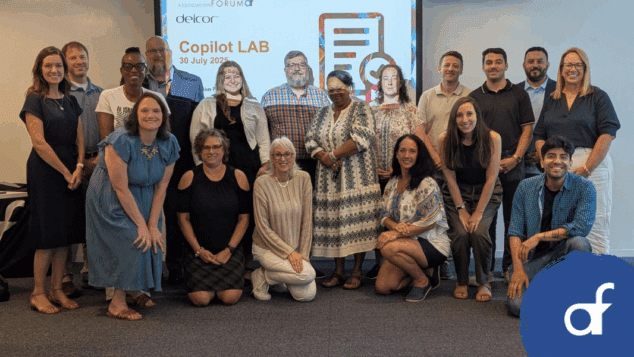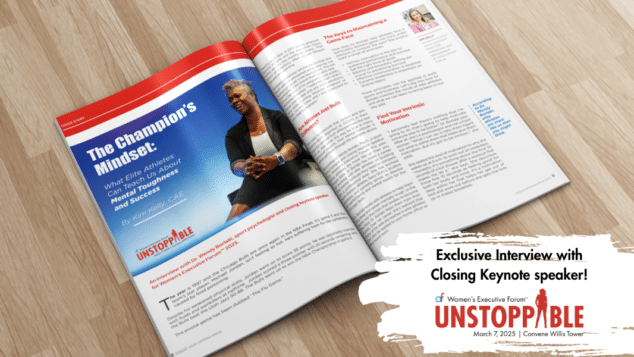Scenario Planning for Events is a Must in Uncertain Times

This is the most unprecedented time in the history of the event-planning industry. Over the past two years, we have gone from a booming meeting landscape to a completely virtual landscape. The times have been dominated by canceled in-person events and hybrid meeting formats that tried to balance travel restrictions and members’ preferences to meet face-to-face. If nothing else, these experiences have taught us not only the need to be nimble but also to plan for contingencies — many contingencies.
How can an association keep up with these changes? By anticipating them and working through various scenarios. This also is where an association management company can help. By planning dozens of meetings each year, these companies have learned about the many twists and turns that an association can encounter at every stage when planning COVID-era events.
FORUM recently talked with four members of the Strategic Events Management team at Association Management Center (AMC) to get their insights about scenario planning during uncertain times. In a normal year, this team would plan more than 100 events for 30 clients. Participating in the interview were Executive Director Colleen Bagnasco, CAE, CMP; Senior Managers Stephanie Dylkiewicz, CMP, DES, and Kari Messenger, CMP, DES; and Manager Anna Gilkerson, CMP, DES.
FORUM: It seems like there are new developments daily as it relates to COVID-19. With that in mind, how often should an organization update its scenario planning and potential strategies for an upcoming meeting?
AMC: Early and often. While COVID-19 has had an effect on events on a much larger scale and the environment continues to change, scenario planning and strategies should always be at the foundation for any organization’s events. If anything, COVID-19 has brought this to the forefront for many organizations; hopefully this will have a lasting impact to allow them to be more agile and plan for various scenarios in the future.
There should be an initial plan with alternative scenarios, and all should be revisited on an ongoing basis. The timing for each event will drive how often updates need to be made, but revisiting and updating the strategies should be built into the overall project plan along with key dates for when decisions will be made to provide direction in the planning.
With regard to the host city, regular communication between the Convention and Visitors Bureau (CVB), hotel(s), convention center, production company, etc., is critical to ensure everyone is in sync with mandates, guidelines, and health and safety protocols. As planners, we need to set clear expectations and run through scenarios, so all involved not only know their role but also have the ability to weigh in with different perspectives. Local stakeholders may surface additional situations you haven’t even considered. It takes a village.
FORUM: How many scenarios do you need to plan for, and how does this impact contract negotiations?
AMC: Not to give an attorney’s response, but it depends. At a minimum, we are creating two or three scenarios to help an organization decide whether to move forward with an in-person, hybrid or virtual conference. It’s critical to look both inward and outward when gathering data to make an informed decision.
There are so many factors to consider: budget scenarios, registration trends and attendee demographics, travel restrictions, and potential mandates and legislation, just to name a few. It’s also important to consider the organization’s reputational risk: What are the trade-offs of shifting from one format to another? What might happen if you have to cancel? If you stay in regular communication with the local CVB, hotel and convention center partners, you should be able to stay ahead of some of these factors, especially travel restrictions and mandates. Monitoring other industry events in your location can also help you stay apprised of staffing and service levels in your partner cities. This isn’t rocket science, but it certainly is challenging.
When negotiating a contract for an event, including terms that allow for the greatest flexibility in these uncertain times is advantageous to the organization. Building in review clauses and flexible performance terms will allow the organization to consider additional scenarios, such as moving forward with an event at reduced capacity or postponing the event to a future year. The lack of flexible contract terms can have a negative impact, limiting the potential scenarios an organization may want to consider.
FORUM: During these uncertain times, what are the “certainties” around which you can build your meeting strategy and scenarios?
AMC: It’s certain that your strategy and scenarios will continue to shift and evolve. But any event should always tie back to your organization’s mission, goals, objectives, stakeholder need and financial impact while ensuring the health and safety of all attendees. If your event stays true to the mission of your association and the needs of your members, you will achieve your goals of advancing their education and networking opportunities. The format is really just the vehicle to deliver your content. It’s imperative to stay informed and look forward with judicious optimism.
Tags
Related Articles
The Power of Taking the AI Journey Together
Forum’s first Microsoft Copilot Lab brought together 20 professionals to explore how smart adoption of...
What to Wear to the Honors Gala 2025: SHINE ON in Style
Get ready to sparkle, shimmer, and most importantly—shine! Association Forum’s Honors Gala 2025 is on…
The Champion’s Mindset: What Elite Athletes Can Teach Us About Mental Toughness and Success
An interview with Dr. Wendy Borlabi, sport psychologist and closing keynote speaker for Women’s Executive...




